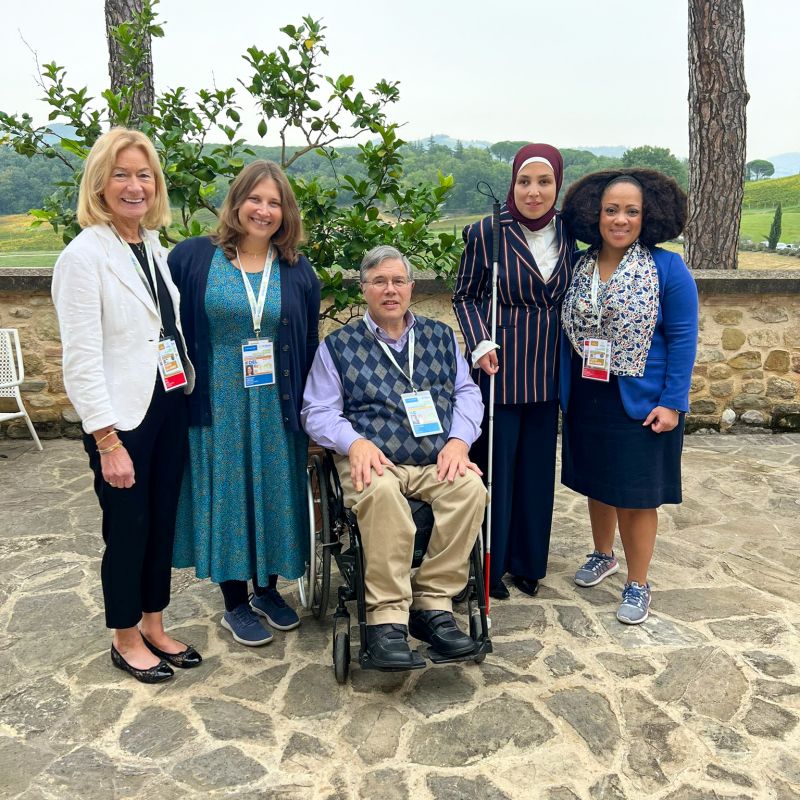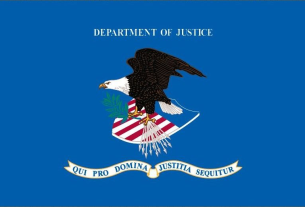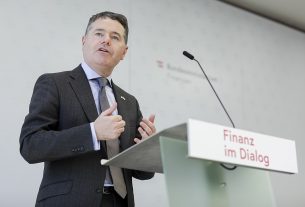On Dec. 3, we marked the International Day of Persons with Disabilities, which aims to promote the rights and well-being of disabled people across all sectors of society. First proclaimed by a United Nations General Assembly resolution in 1992, this annual observance highlights an increased understanding that access and inclusion are essential to progress for all people, in all countries.
The first-ever G7 Ministerial Meeting on Inclusion and Disability, held Oct. 13–15, 2024, reflected this global perspective. Recently, we sat down with our own Assistant Secretary of Labor for Disability Employment Policy Taryn M. Williams—who traveled to Italy as part of the U.S. delegation to this historic event—to learn more about what this convening means for people with disabilities in the U.S. and worldwide.
What was the purpose of this event?
This was an opportunity to continue conversation and elevate engagement among G7 nations about disability inclusion and exchange ideas and expertise on the full range of issues involved, from independent living to technology to employment and really all aspects of community life. The agenda was structured around eight priority areas, and on the last day, member countries signed the Charter of Solfagnano to affirm their commitment to advancing those priorities. It was incredibly exciting and an absolute honor to be invited to join the U.S. delegation.
What types of discussions took place, and what was your role?
Given our mission, I was mostly involved in conversations around employment, which were directly addressed under the priority of “Enhancements of Talents and Work Inclusion” but also indirectly through others. I spoke on several technical panels to share our experiences and learn from others. Overall, employment was a prominent topic, because it’s essential to building more inclusive societies, since for most people, disabled or not, work is about not just a paycheck, but about purpose—about autonomy and independence and belonging.
What were some of the main themes that emerged?
One major issue was AI [artificial intelligence]. There was consensus that we, as leaders in the disability community in our countries, have a responsibility to be conversant in AI and what it means for people with disabilities. We don’t need to be experts, but rather must understand that there are both risks and benefits, and we can’t ignore them. On this topic, I was proud to be able to share our work to promote inclusive AI, including our AI and Inclusive Hiring Framework.
It was also clear that, when it comes to employment, disability inclusion is not just an individual issue. It’s vital to collective progress. There was consensus that strong economies require inclusive workforces, and that this is an issue on which G7 nations have the power to demonstrate leadership that can have significant impact beyond their borders.
What do you feel are the U.S.’s strengths in this area?
Well, to start, it’s important to remember that we were the first country in the world to adopt comprehensive civil rights legislation prohibiting discrimination on the basis of disability—the ADA [Americans with Disabilities Act of 1990]. Since its passage, the ADA has been regarded as a gold standard when it comes to disability rights. It’s my belief that a lot of the international dialogue taking place today—including the G7 meeting—has roots in our leadership.
But, on a more granular level, at the meeting, I was proud to share innovative steps we’ve taken, for instance, regarding federal employment, federal contractor requirements, and helping America’s employers recruit and retain disabled workers and provide effective accommodations. Also, our size and structure mean we have significant experience coordinating on this issue at multiple levels of government—federal, state and local—so we had a lot to share there, especially around state policy.
Was there a favorite moment?
Everything was exciting, but the opening ceremony was truly moving, especially coming on the heels of the Paralympics. It included remarks from each member nation, but they were interspersed with people with disabilities themselves—real people whose real stories illustrate our commonalities, and our shared humanity. It was a true celebration of disability rights. It was also a celebration of diversity within disability. The event genuinely reflected who we talk about when we talk about people with disabilities, not just at the opening ceremony but across all three days. The spirit of “nothing about us without us” was evident throughout everything. This was, and is, a key tenet of the disability rights movement in the U.S., and it was heartening to see it on a global scale.
Taryn M. Williams is the Assistant Secretary of Labor for Disability Employment Policy.



